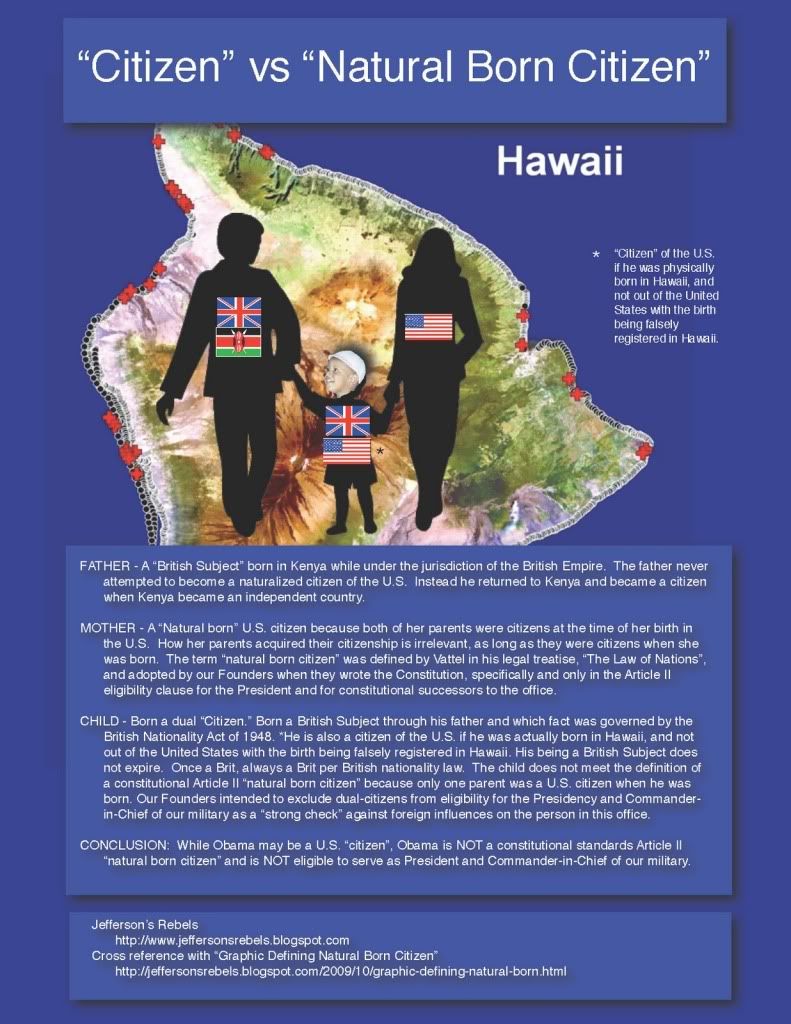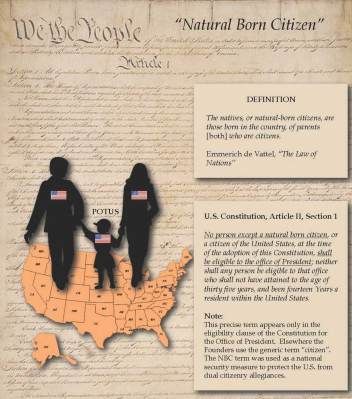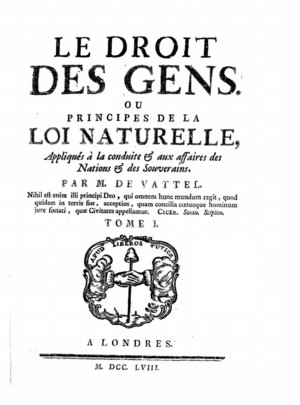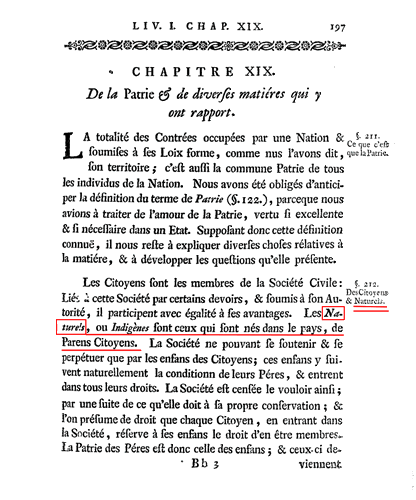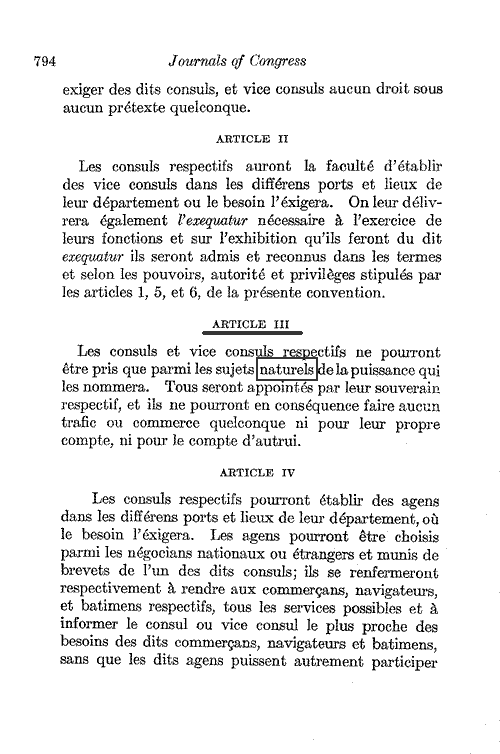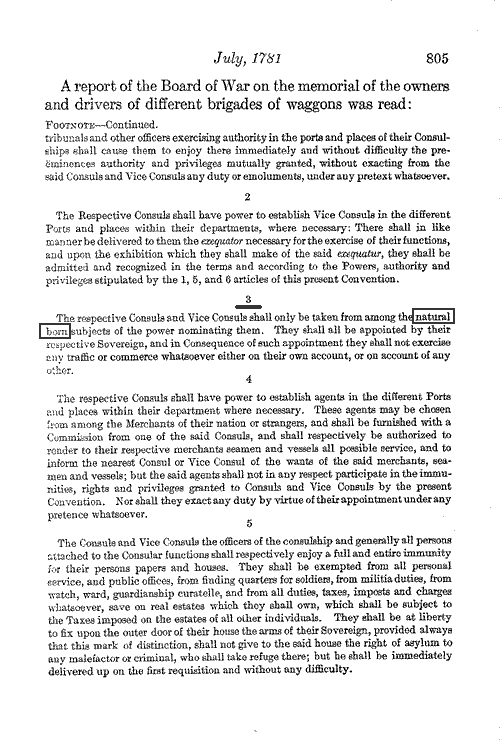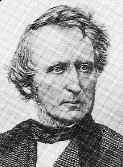"The time may ere long arrive when the minds of men will be prepared to make an effort to recover the Constitution, but the many cannot now be brought to make a stand for its preservation. We must wait a while." - Alexander Hamilton to Gouverneur Morris, 27th February, 1802 (from N.Y. Historical Societys Collections (Lee Papers), vol. III, 1873)
"If ye love wealth better than liberty, the tranquility of servitude better than the animating contest of freedom, go home from us in peace. We ask not your counsels or arms. Crouch down and lick the hands which feed you. May your chains set lightly upon you and may posterity forget that ye were our countrymen." ~Samuel Adams, 1776
“In the beginning of a change the patriot is a scarce man, and brave, and hated and scorned. When his cause succeeds, the timid join him, for then it costs nothing to be a patriot.” - Mark Twain (1904).
Note: There is much more to be added to the following, ongoing, compilation of historical information...time permitting. Stay tuned.
Search for "NEWLY ADDED" for new content and "NEWLY UPDATED" for that which has been updated recently (7/23/13).
Factcheck.org goes on to say this about Obama Sr., Jr. and the British Nationality Act of 1948: In other words, at the time of his birth, Barack Obama Jr. was both a U.S. citizen (by virtue of being born in Hawaii)* and a citizen of the United Kingdom and Colonies (or the UKC) by virtue of being born to a father who was a citizen of the UKC.Original link no longer works: http://www.factcheck.org/askfactcheck/does_barack_obama_have_kenyan_citizenship.html Check Wayback machine: https://web.archive.org/web/20091224211704/http://www.factcheck.org/askfactcheck/does_barack_obama_have_kenyan_citizenship.html * Assumes yet to be proven HI birth
Even the modern day State Department rules discuss the problems associated with dual citizenship: (e)While recognizing the existence of dual nationality, the U.S. Government does not encourage it as a matter of policy because of the problems it may cause. Dual nationality may hamper efforts by the U.S. Government to provide diplomatic and consular protection to individuals overseas. When a U.S. citizen is in the other country of their dual nationality, that country has a predominant claim on the person. ... the U.S. Supreme Court has stated that dual nationality is a "status long recognized in the law" and that "a person may have and exercise rights of nationality in two countries and be subject to the responsibilities of both." See Kawakita v. United States, 343 U.S. 717 (1952). And this... US State Department Services Dual Nationalityhttp://travel.state.gov/content/travel/en/legal-considerations/us-citizenship-laws-policies/citizenship-and-dual-nationality/dual-nationality.html So, back to the question: "HOW CAN A NATURAL BORN CITIZEN'S STATUS BE "GOVERNED" BY GREAT BRITAIN?"
================================================================================================================================ When the Deceleration of Independence and the Constitution were written, English subjects could not renounce their allegiance to the one sovereign, the crown: "Natural allegiance is such as is due from all men born within the king's dominions immediately upon their birth. For, immediately upon their birth, they are under the king's protection; at a time too, when (during their infancy) they are incapable of protecting themselves. Natural allegiance is therefore a debt of gratitude; which cannot be forfeited, cancelled, or altered, by any change of time, place, or circumstance, nor by any thing but the united concurrence of the legislature. An Englishman who removes to France, or to China, owes the same allegiance to the king of England there as at home, and twenty years hence as well as now. For it is a principle of universal law, that the natural-born subject of one prince cannot by any act of his own, no, not by swearing allegiance to another, put off or discharge his natural allegiance to the former: for this natural allegiance was intrinsic, and primitive, and antecedent to the other; and cannot be devested without the concurrent act of that prince to whom it was first due. Indeed the natural-born subject of one prince, to whom he owes allegiance, may be entangled by subjecting himself absolutely to another; but it is his own act that brings him into these straits and difficulties, of owing service to two masters; and it is unreasonable that, by such voluntary act of his own, he should be able at pleasure to unloose those bands, by which he is connected to his natural prince."William Blackstone, Commentaries 1:354, 357--58, 361--62 How, then, did they declare their Independence from the King if they owed a perpetual allegiance to the crown that could not be "forfeited, cancelled, or altered" under English Common law? They used the principles found in natural law. Vattel states, in the Law of Nations (which is based on natural law), that citizens may renounce (or quit) their citizenship, and thus allegiance, to a country: "Chapter XIX: Of Our Native Country And Several Things That Relate To ItThe founders could never have written the Declaration of Independence had they relied upon English Common law. Additionally, as shown below, prominent framers proclaimed the rejection of English Common law during the critical ratification period. What follows, is a bit of information with regards to the Constitutional term "natural born Citizen" (specifically) and NOT about the entire makeup, functions, origins and influences that made/make up our form of government, a Constitutional Republic. Clearly, the framers relied upon many different sources to create our new form of government. Who, or "what" constituted a natural born Citizen was well known to the framers. Jay would not have made such a suggestion to the others (Washington & the rest of those in attendance at the Constitutional Convention) unless there was a clear understanding of what that term meant. The definition comes from a source that not only the framers (speficically), founders (more broadly), but the general learned population in the colonies (more generically) as well. By the summer of 1787, there were many English (& other language) translations of Vattel's respected legal treatise. And yes, even though many founders could not speak French, many could read French (except, notably, Washington who would defer to Jefferson when such interpretation was needed). Emer de Vattel, Le droit des gens, ou Principes de la loi naturelle, vol. 1 (of 2) [1758]
A detailed, historical, etymology of the term "natural born Citizen" can be found here: http://www.greschak.com/essays/natborn/index.htm
1763 February 1, 1763 - John Adams writes in his diary, that he hasn't spent much time reading and thinking...but should have done more: "I employed however, too little of my Time in Reading and in Thinking. I might have spent much more. The Idea of M. de Vattell indeed, scowling and frowning, haunted me." July 23, 1764 - Early patriot and advocate of the political views that led to the American Revolution, James Otis Jr wrote: The Rights of the British Colonies Asserted and Proved (1764). This pamphlet sets down another important philosophy underpinning the Revolutionary debate: it asserts that rights are not derived from human institutions, but from nature and God. Thus, government does not exist to please monarchs, but to promote the good of the entire society. During the Stamp Act crisis, John Adams participated with Samuel Adams, James Otis, Thomas Cushing, Jeremiah Gridley, and others in lively discussion of politics and general topics. With known writings (Otis, above; Adam's belwo), it's obvious that these leading men of the era discussed the principles of natural law and in particular, Vattel's Law of Nations. September 1764 - Later in the same year, Vattel was "celebrated" as a "genius" by newspaper printer James Davis (i.e. non founder or framer) in North Carolina in 1764, nearly a quarter of a century prior to the Constitution being written. Clearly, not only was Vattel well read and respected by the well known founders and framers...but across the colonies as well. This was many years in advance of not only the Constitution...but the Declaration of Independence!
1765 December 27, 1765 - John Adams references Vattel's legal treatise, for rules that are of great use to Judges, when he writes in his diary, about a case involving Maj. Robert Rogers: "In unforeseen Cases, i.e. when the State of things is found such as the Author of the Disposition has not foreseen, and could not have thought of, we should rather follow his Intention than his Words, and interpret the Act as he himself would have interpreted it, had he been present, or conformably to what he would have done if he had foreseen the Things that happened. This Rule is of great Use to Judges. Vattell. Page 230. B. 2. C. 17. §. 297. If a Case be presented, in which one cannot absolutely apply the well known Reason of a Law or a Promise, this Case ought to be excepted. B. 2. C. 17. §. 292. Every Interpretation that leads to an Absurdity, ought to be rejected. Page 222 B. 2. C. 17. §. 282. Every Impossibility, physical and moral is an Absurdity."1771 October 28, 1771 - Patriot, Boston revolutionary leader, founding father and one of the architects of the principles of American republicanism, Samuel Adams references Locke when he writes of the weakness of the British position that every man is born a subject to his Prince and therefore is under a perpetual tie of subjection and allegiance. He then quotes Vattel, saying: "Every man being born free, says another distinguished writer, the son of a citizen, arrived at the years of discretion, may examine whether it be convenient for him to join in the society for which he was destined by birth*. If he finds that it will be no advantage for him to remain in it, he is at liberty to leave it, preserving as much as his new engagements will allow him, the love and gratitude he owes it. 1 ... " There are cases in which a citizen has an absolute right to renounce his country, and abandon it for ever " ; which is widely different from the sentiment of the historian, that "allegiance is not local, but perpetual and unalienable."1 Mr. Vattel, law of nature and nations. (& here). 1772 January 27, 1772 - Samuel Adams continues to quote Vattel (& here), a number of times, on why the British Parliament can not change their Constitution by themselves (without the peoples consent): "Vat[t]el tells us plainly and without hesitation, that 'the supreme legislative cannot change the constitution,' 'that their authority does not extend so far,' and 'that they ought to consider the fundamental laws as sacred, if the nation has not, in very express terms, given them power to change them." ... "The fundamental laws," says Vatel, " are excepted from their (legislators) commission," " nothing leads us to think that the nation was willing to submit the constitution itself to their pleasure." " They derive their authority from the constitution, how then can they change it without destroying the foundation of their own authority?" January 26, 1773 - In a letter titled: "Reply of the House to Hutchinson's First Message" to Thomas Hutchinson (the Colonial Governor of Massachusetts) John Adams begins to make that case that the (British) parliament doesn't have the power to change the (British, collection of laws) constitution without the people's consent: "In solemn Agreements subsequent Restrictions ought never to be allowed. The celebrated Author whom your Excellency has quoted, tells us that neither the one or the other of the interested or contracting Powers hath a Right to interpret at Pleasure.55. In his address of 6 Jan., Hutchinson had quoted this passage from Emmerich de Vattel, The Law of Nations, or, Principles of the Law of Nature, applied to the Conduct and Affairs of Nations and Sovereigns: When a nation takes possession of a distant country, and settles a colony there, that country, though separated from the principal establishment, or mother country, naturally becomes a part of the state, equally with its ancient possessions (bk. 1, ch. 18, sect. 210). The statement offered by the House in rebuttal appears in the same work, bk. 2, ch. 17, sect. 265. 12. That is, Vattel. The passage which follows appears in The Law of Nations, bk. 1, ch. 3, sect. 34. March 2, 1773 - John Adams continues, further quoting Vattel, in a letter titled "Reply of the House to Hutchinson's Second Message": "Your Excellency has not thought proper to attempt to confute the Reasoning of a learned Writer on the Laws of Nature and Nations, quoted by us on this Occasion,16 to shew that the Authority of the Legislature does not extend so far as the Fundamentals of the Constitution. We are unhappy in not having your Remarks upon the Reasoning of that great Man; and until it is confuted, we shall remain of the Opinion, that the Fundamentals of the [British collection of laws] Constitution being excepted from the Commission of the Legislators, none of the Acts or Doings of the General Assembly, however deliberate and solemn, could avail to change them, if the People have not in very express Terms given them the Power to do it; and that much less ought their Acts and Doings however numerous, which barely refer to Acts of Parliament made expresly to relate [to] us, to be taken as an Acknowledgment that we are subject to the Supreme Authority of Parliament."16. That is, Vattel. The Law of Nations, bk. 1, ch. 3, sect. 34. December 14, 1775 - From the diary of Richard Smith, member of the Second Continental Congress: "Much of the Day was spent upon an Answer to that Part of Gen. Washns. Letters requesting Directions what to do with the Ships & Cargoes lately taken by our armed Vessels which was at length referred after learned Debates & Authorities from Vattel &c.(1)" December 19, 1775 - Doctor Benjamin Franklin writes to M. Dumas, Philadelphia, (An example of just how important Vattel's "Law of Nations was to the founders): "I am much obliged by the kind present you have made us of your edition of Vattel, It came to us in good season, when the circumstances of a rising State make it necessary frequently to consult the law of nations. Accordingly, that copy which I kept (after depositing one in our own publick library here, and sending the other to the College of Massachusetts-Bay, as you directed) has been continually in the hands of the members of our Congress now sitting, who are much pleased with your notes and preface, and have entertained a high and just esteem for their author." 1776 March 24, 1776 - Franklin writes to James Bowdoin (2nd Governor of Mass, Pres of conv that created Mass Constitution, member of conv in Mass that ratified fed Constitution): "I have put into Mr Adam's Hands directed for you, the new Edition of Vattel When you have perus'd it, please to place it in your College Library. (2)"
Historian David Armitage argues that the first sentence of the Declaration was strongly influenced by Emerich de Vattel's The Law of Nations. ... Armitage explains that the primary purpose of the Declaration was "to express the international legal sovereignty of the United States." Vattel's work was the "standard guide" to "the prevailing norms of the law of nations," and "Vattel made independence fundamental to his definition of statehood." Thus, if the United States of America were to have any hope of being recognized by the European powers, the American revolutionaries had to first make it clear that they were no longer dependent on Great Britain. "The Declaration's vision of 'Free and Independent States' assuming the 'station to which the laws of nature and nature's God entitle them' owes an obvious debt to Vattel's conception of states as free and independent under the laws of nature." Armitage emphasizes that "no writer on the law of nations before Vattel had so consistently--and persistently--emphasized freedom, independence, and interdependence as the condition of states in their relations with one another." The concepts of "natural law" and the phrase "Laws of Nature" (of which Law of Nations is built upon) are found within the Declaration of Independence itself: When in the Course of human events, it becomes necessary for one people to dissolve the political bands which have connected them with another, and to assume among the powers of the earth, the separate and equal station to which the Laws of Nature and of Nature's God entitle them, a decent respect to the opinions of mankind requires that they should declare the causes which impel them to the separation. We hold these truths to be self-evident, that all men are created equal, that they are endowed by their Creator with certain unalienable Rights, that among these are Life, Liberty and the pursuit of Happiness.--That to secure these rights, Governments are instituted among Men, deriving their just powers from the consent of the governedThose (& others) are clearly NOT derived from English law, but rather from natural law concepts (which can be found in Vattel's Law of Nations). 1777 June 29, 1777 - When writting to the King of Prussia from Berlin, Arthur Lee, envoy of the Continental Congress to Prussia, brother of Richard Henry Lee, quoted Vattel when trying to persuade the King to open commerce with the recently declared Independant United States: "But it may be said this would be taking an active part in the affair and deciding for the independence of America. November 8, 1777 - Elbridge Gerry, a Massachusetts delegate to the Continental Congress from February 1776 to 1780 "wrote to Thomas Wharton, first President of Pennsylvania (akin to Governor): "Dear Sir York in Pennsylvania Novr 8. 1777 The following Books are much wanted by some Gentlemen of Congress, & are not to be procured in this Place; if they are to be found in the Pennsylvania Library, which We are informed is removed by Order of your Excellency to Lancaster, I shall be much obliged to You for the Loan thereof being with respect your Excellency's very huml sert,(1) E Gerry 1778 January 1, 1778 - Continental Congress member, James Lovell writes to John Adams requesting the great works on natural law: "Your aid has been greatly wanted upon a most important transaction. We have had a call for your stores of Grotius Puffendorf Vattel &c. &c. &c. to support reason and commonsense or to destroy both, just as your Honour and Da and Du and Dy1 should interpret the text."1. Francis Dana, William Duer, and Eliphalet Dyer. The first two were members of the committee which reported at length on the Gates-Burgoyne exchange of letters, in which the latter claimed that the Americans had broken faith by violating the terms of the Saratoga Convention. Dyer may have been in Lovell's mind because the day before Dyer had been named with Dana and Duer to a committee to consider a motion for sending a congressional committee to camp to investigate the justification for reforming the army by reducing the number of officers ( JCC , 9:1034, 1074). December 22, 1779 - Benjamin Franklin writes a letter of protest to the Danish foreign minister, Andreas Peter Bernstorff regarding the "Bergen Prizes" incident. John Paul Jones had captured 3 British vessels in the North Sea, encountered rough weather and sought refuge and aid in what he supposed to be the friendly port of Bergen Norway (then under Danish rule). The British learned of this and demanded that Denmark should restore the vessels to them. The Danish foreign office complied on the ground that Denmark had not yet acknowledged the independence of the United States. "This 1758 work by Swiss legal philosopher Emmerich de Vattel is of special importance to scholars of constitutional history and law, for it was read by many of the Founders of the United States of America, and informed their understanding of the principles of law which became established in the Constitution of 1787. Chitty's notes and the appended commentaries by Edward D. Ingraham, used in lectures at William and Mary College, provide a valuable perspective on Vattel's exposition from the viewpoint of American jurists who had adapted those principles to the American legal experience." Vattel's Law of Nations, built upon "natural law - which has it's roots in ancient Greece, was influenced by Leibniz.
Blackstone affirmed the basis of natural law:
Thomas Jefferson had the 1758 version as well as a 1775 version in his own library: John Jay, President of the Continental Congress from 1778 to 1779 and, from 1789 to 1795, the first Chief Justice of the United States, leading opponent of slavery and the founder who wrote to George Washington regarding the suggestion that the POTUS be a NBC , had Vattel in his home library: In AUTOBIOGRAPHY by Thomas Jefferson, he states: "On the 1st of June 1779. I was appointed Governor of the Commonwealth and retired from the legislature. Being elected also one of the Visitors of Wm. & Mary college, a self-electing body, I effected, during my residence in Williamsburg that year, a change in the organization of that institution by abolishing the Grammar school, and the two professorships of Divinity & Oriental languages, and substituting a professorship of Law & Police, one of Anatomy Medicine and Chemistry, and one of Modern languages; and the charter confining us to six professorships, we added the law of Nature & Nations..." This was 8 years prior the the writing of the Constitution! [See the "Law of Nature & Nations" section of his personal library to get an idea of what he included in this curriculum in America's 1st law school]. Prior to Jay's famous letter to those in attendance at the Constitutional Convention, we see (one of many exchanges between the founders) a letter from Madison ("father" of the Constitution) to Jay: "James Madison, as a member of the Continental Congress in 1780, drafted the instructions sent to John Jay, for negotiating a treaty with Spain, which quotes at length from The Law of Nations. Jay complained that this letter, which was probably read by the Spanish government, was not in code, and "Vattel's Law of Nations, which I found quoted in a letter from Congress, is prohibited here.[29]" July 10, 1784 - Abigail Adams pens a letter to Royall Tyler, the esquire who courted John & Abigail's daughter and studied law under Francis Dana (see above in 1778): "From then[c]e I have followed you to your professional employment, investigating the principals upon which the Law of Nature and Nations is founded, with pleasure have I seen your delight in the company, and Society, of Grotius, Puffendorf, Bacon, Vatel and numerous other writers cal[c]ulated to inform the mind and instruct the judgment; not Superficially skimming, the surface which in every science Serves only to bewilder the understanding and creat pedants in literature, but resolving by a close and Steady application to become master of the Subject in which you engage." 1785 October 15, 1785 - Elbridge Gerry writes to Timothy Pickering: ..."I am in Want of the following Books from Messr Jackson & Dunn, & wish to know whether I must send the others to Phila., or deliver them to any Friend of those Gentlemen here. The Books wanted are Vattel's Law of Nations. Burlamaqui's principles of natural & political Law 8 vo. Burlamaqui's Law of Nations * if the Reputation of it, is equal to his other works. Government of the Germanic Body, 8 vo. Grotius on War & peace 8 vo. if it is a Translation of his Whole Work de Jure Belli & Pacis. St Evremond in French is not what I want."* As Burlamaqui wrote no such work, Gerry may have had in mind the one volume edition of the first half of the preceding work published under the title The Principles of Natural Law, which had been issued in various printings by J. Nourse at London in 1748, 1752, 1762, and 1780, or of the second half published under the title The Principles of Politic Law by Nourse in 1752. November 25, 1785 - Then Secretary of Foreign Affairs, John Jay, writes to the acting chairman of the 7th Congress of the Confederation, David Ramsay: "Sir: Mr. Temple presented to me this Morning the Commission which I have now the Honor of transmitting to your Excellency, herewith enclosed. It appoints him Consul General of his brittanic Majesty throughout the United States of America. John Jay, was well read concerning Vattel's Law of Nations, ahead of his famous letter to Washington in 1787 concerning natural born Citizens. David Ramsey would latter write a pamphlet on citizenship in 1789 (see below).
NBC in the Constitutional drafts: June 18, 1787 - Alexander Hamilton suggests that the requirement be added, as: "No person shall be eligible to the office of President of the United States unless he be now a Citizen of one of the States, or hereafter be born a Citizen of the United States." Works of Alexander Hamilton (page 407). June 27 1787. IN CONVENTION (Vattel's legal work is read aloud during the Federal Convention) "...that an equal vote in each State was essential to the federal idea, and was founded in justice & freedom, not merely in policy: that tho' the States may give up this right of sovereignty, yet they had not, and ought not:In order to prove that individuals in a State of nature are equally free & independent he [Luther Martin] read passages from Locke, Vattel, Lord Summers -- Priestly. To prove that the case is the same with States till they surrender their equal sovereignty, he [L.M.] read other passages in Locke & Vattel, and also Rutherford:" From Madison's Notes on the Convention. July 25, 1787 (~5 weeks later) - John Jay writes a letter to General Washington (president of the Constitutional Convention): "Permit me to hint, whether it would be wise and seasonable to provide a strong check to the admission of Foreigners into the administration of our national Government; and to declare expressly that the Commander in Chief of the American army shall not be given to nor devolve on, any but a natural born Citizen." [the word born is underlined in Jay's letter which signifies the importance of allegiance from birth.] September 2nd, 1787 George Washington pens a letter to John Jay. The last line reads: "I thank you for the hints contained in your letter" September 4th, 1787 (~6 weeks after Jay's letter and just 2 days after Washington wrote back to Jay) - The "natural born Citizen" requirement is now found in their drafts. Madison's notes of the Convention The concepts of "natural law" continued in the Constitution: We the People of the United States, in Order to form a more perfect UnionAgain, those phrases are not from England's common law, but rather from natural law and even mention "Law of Nations." by name. September 9, 1787 - John Quincy Adams writes this in his diary: "This forenoon I finish'd the first volume of Robertson's Charles V. and as I read now in connection with my studies, I shall not proceed with the other volumes. In the afternoon I took up Vattels' law of nature and of nations.1"1. Emmerich de Vattel, Le droit des gens; ou, principes de la loi naturelle, appliqués à la conduite et aux affaires des nations et des souverains, Leyden, 1758, and subsequent English translations. Presumably in this and other cases, JQA was using Parsons' law books. The copy known to have been owned by an Adams at this time was a French edition, Amsterdam, 1775, given to JA by C. W. F. Dumas in 1781. September 15, 1787 - John Quincy Adams continues to speak highly of Vattel in his diary, noting that vol 1 deals with intra-national issues while vol 2 describes inter-national topics: "I finished this day the first volume of Vattel. The first book treats of the duties of a nation with respect to itself: the second of its obligations towards others. His sentiments and principles appear to be dictated by good sense and real virtue. They appear all to derive from that law of nature, which every person of common sense and common honesty must wish to prevail, Do as you would be done by."September 22, 1787 - John Quincy Adams writes in his diary: "This forenoon I finish'd Vattel. The third book treats of War, and the fourth of Peace; much in the same manner as he treats the other parts of his subject. Honesty is the best policy, says nature; and so says Vattel." October 18, 1787 - James Madison wrote to George Washington, N. York: "Since the Revolution every State has made great inroads & with great propriety in many instances on this monarchical code.[Edit: Englands "Common Law"] The "revisal of the laws" by a Committe of wch. Col. Mason [Edit: George Mason] was a member, though not an acting one, abounds with such innovations. The abolition of the right of primogeniture, which I am sure Col. Mason does not disapprove, falls under this head.. What could the Convention have done? If they had in general terms declared the Common law to be in force, they would have broken in upon the legal Code of every State in the most material points: they wd. have done more, they would have brought over from G.B. a thousand heterogeneous & anti-republican doctrines, and even the ecclesiastical Hierarchy itself, for that is a part of the Common law." June 18, 1788 - George Mason, In Convention, Richmond (Debates in the Several State Conventions on the Adoption of the Federal Constitution), states: "We have it in our power to secure our liberties and happiness on the most unshaken, firm, and permanent basis. We can establish what government we please. But by that paper we are consolidating the United States into one great government, and trusting to constructive security. You will find no such thing in the English government. The common law of England is not the common law of these states." Just as they had done more than a decade earlier by declaring their independance from the crown, here we see the father of the Constitution, and the father of the Bill of Rights rejecting the English Common Law as being the American Common Law. The adoption of a constitution, by the Constitutional Congress in 1787, based on natural law principles rather than British legal doctrine, was certainly not inevitable. However, British legal experts such as Blackstone, who argued that the Parliament and King could change the constitution, were increasingly recognized by the Americans as proponents of arbitrary power (See James Otis, John and Samuel Adams letters in the 1760's - 1770's). The early revolutionary leaders' emphasis on Vattel as the authority on constitutional law, with his conception that a nation must choose the best constitution to ensure its perfection and happiness, had very fortunate consequences for the United States and the world, when the U.S. Constitution was writen and ratified [1]. Additionally, Blackstone: "The English common law provided that an alien naturalized is to all intents and purposes a natural born subject. Co. Litt. 129 (quoted and cited in Rhodes, 27 F.Cass. at 790). With such recognition, a naturalized citizen would have been eligible to be President of the new Republic." Arnold Schwarzenegger is not POTUS eligible.
On April 30, 1789, George Washington took the oath of office as President of the United States from the balcony of Federal Hall in New York City. The President and Congress shared space in Federal Hall with the New York Society Library. Founder and Historian David Ramsay Defines a natural born Citizen in 1789. Ramsay reaffirms the definition a natural born Citizen (born in country, to citizen parents (plural)) in 1789 A Dissertation on the Manners of Acquiring the Character and Privileges of a Citizen (1789) The Naturalization Act of 1790, which states (in relevant part) "that the children of citizens [plural] of the United States that might be born beyond the sea, or out of the limits of the United States, should be considered as natural-born citizens" Of course, the Act of 1790 was repealed by the Act of 1795 (which did NOT attempt to define or extend the definition for NBC). What the 1st Congress had tried to do in 1790 was to EXTEND the known definition (of born in country to citizen parentS) to those born outside of sovereign territory, to citizen parentS. Of course, they can't do that. Congress (by itself) doesn't have the Constitutional authority to define (or EXTEND) the Constitutional term "natural born Citizen." Only a SCOTUS decision on the intent of the framers, or an amendment to the Constitution can do that. Years prior to becoming President, Thomas Jefferson quoted Chapter 19 (XIX), sec. 214 (2 sections away from the Les naturels, or Citizens who are natural born section of 212), when he stated in his A MANUAL OF PARLIAMENTARY PRACTICE:
1825 September 30, 1825 - October 21, 1825 - Writing in his diary, Charles Francis Adams, Sr., does what his father (John Quincy Adams), grandmother (Abigail Adams) and grandfather (John Adams) did before him. He reads Vattel's Law of Nations, specifically, his father's copy (London, 1793) the same year he graduates from Harvard. [1]..[16]. The New Englander, Volume 3 (1845) states: "The expression citizen of the United States occurs in the clauses prescribing qualifications for Representatives, for Senators, and for President. In the latter, the term natural born citizen is used and excludes all persons owing allegiance by birth to foreign states." Each and every one of the first 18 Presidents, with the exception of William Henry Harrison (#9) who was in office only 1 month (& died due to complications from a cold), from George Washington to U.S. Grant...ALL spoke of the "law of nations" in either an "Annual Message" (to Congress) and/or a "Special Message" or "Proclamation!" A few of the more notable POTUS references to "law of nations" are:
SCOTUS, in an 1887 case cites Vattel a number of times and reitterates that his work was translated into English in 1760: It's interesting to note that (non binding) Senate Resolution 511, which attempted to proclaim that Sen. John McCain was a "natural born Citizen" because he was born to citizen parentS, even they referenced the (repealed) Naturalization Act of 1790: "Whereas such limitations would be inconsistent with the purpose and intent of the `natural born Citizen' clause of the Constitution of the United States, as evidenced by the First Congress's own statute defining the term `natural born Citizen'". The point is that up until relatively recently, the SCOTUS, the Congress, Presidents and the country were well acquainted with the law of nations and Vattel's edition in particular. It is also that, with the exception of the repealed Act of 1790 which tried to EXTEND the definition, the meaning of the term "natural born Citizen" (of the U.S.) has ALWAYS been about being born within the sovereign territory or jurisdiction of the U.S. to 2 citizen parents (& therefore parents who do NOT owe allegiance to another, foreign, country and who often then pass that foreign citizenship & allegiance owed on to their child - by birthright). To belittle or ignore the significance of Vattel's legal treatise, "Law of Nations" is to ignore the clear historical record that his work on natural law was very influential to our Independence and, latter, to our founding. | |||||||||||||||||||||||||||||
Last Update: 07/23/2013. | |||||||||||||||||||||||||||||
| Is this really it? (re: possible Obama's Kenyan B.C. - Attny Taitz) Click on the link (12,596 posts as of 02.12.2021)
|
